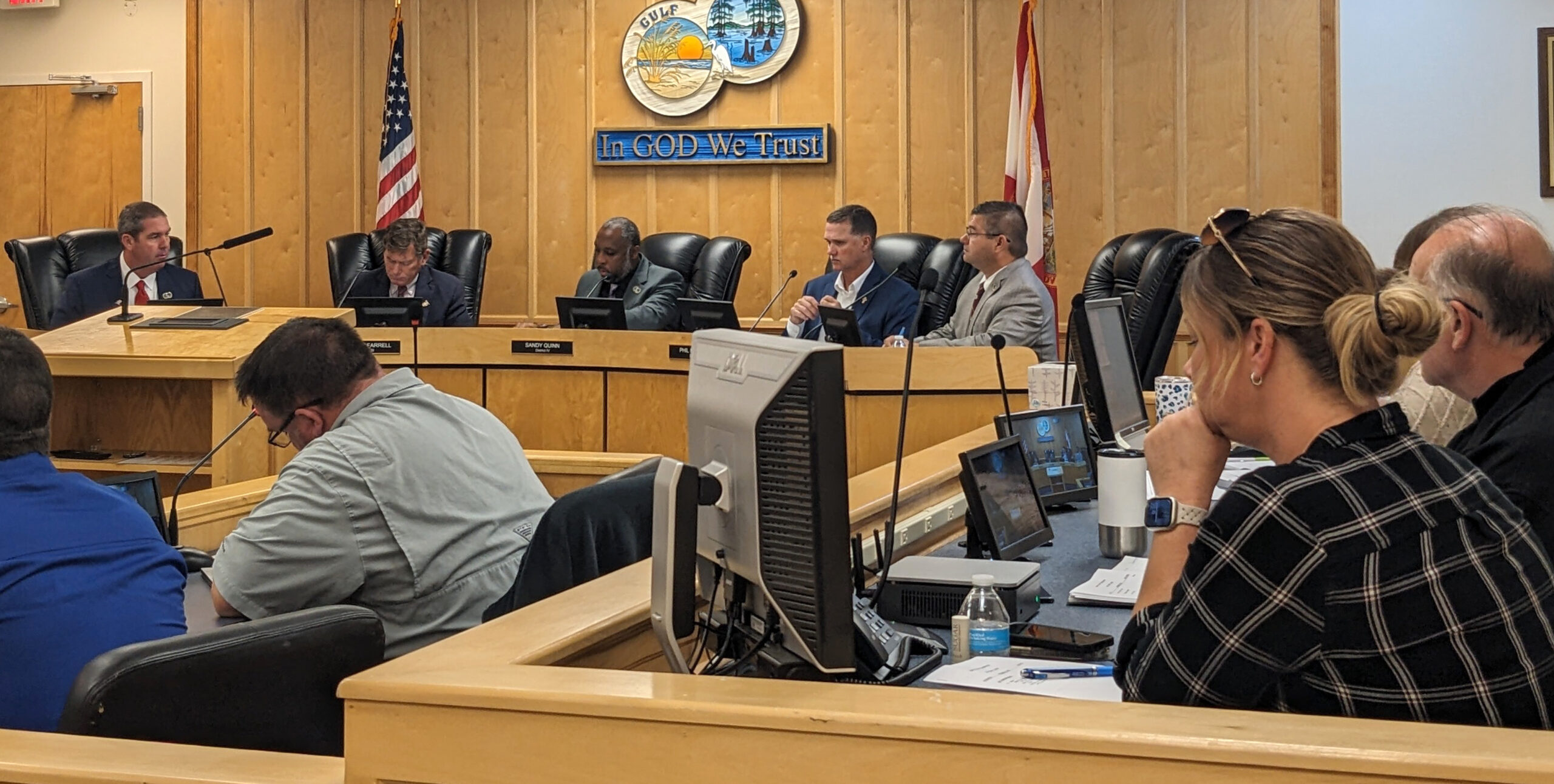Gulf commission discusses bears and beach driving
In the wake of the Thanksgiving holiday weekend, Gulf County commissioners convened Nov. 28 to tackle a number of new, old, and recurring issues landing on the pages of the latest agenda.
One topic of weight on the agenda revolved around several issues tied to Gulf County’s beach driving ordinance, including potential revisions to the fee structure and eligibility criteria for permits.
A critical issue was the $3 lifetime beach driving permits for residents over age 65, which had inadvertently been extended to non-residents. Though not a commonality, the concern has at times led to unexpected complications, such as a non-resident from Georgia found misusing a permit issued to an older family member.
The board proposed to limit the $3 permit to Gulf County residents only, excluding property owners who are not residents. The discussion clarified that the exemption would apply to residents, whether they are taxpayers or long-term renters, provided they can prove their residency with documentation like leases and utility bills.
Additionally, the board planned to adjust the out-of-county fee to align with the policy, setting a cap of 200 permits per year, sold from Jan. 1 through Dec. 31.
As well, to address concerns about misuse of permits, the board emphasized that permits must be attached to specific vehicles and cannot be transferred. They also discussed the need for an emergency ordinance to expedite the process, with plans to ratify the changes at the Dec. 12 meeting to ensure sales of the permits could commence shortly thereafter on Jan. 1.
In another significant move by the county board, a resolution was sought for a longstanding issue concerning a bankrupt development on Cape San Blas. The development, dormant for nearly a decade and a half due to lack of infrastructure such as roads, water and sewer, saw a revival when an individual bought several lots in the area.
The county, adhering to its policy, had restricted the issuance of building permits until the essential infrastructure was in place. With the original developer bankrupt and the bond expired, a new settlement has recently been proposed. Under this agreement, the current lot owners, rather than the original developer, will install all required infrastructure.
This collaborative resolution is expected to benefit everyone involved, allowing property owners to build homes and contribute to the Gulf County tax base. The stipulated settlement includes removing a common parcel from the platted subdivision and converting it into a buildable lot to facilitate the recovery of infrastructure costs.
Furthermore, the proposed solution also shifts from using bonds to escrow accounts for developers, ensuring the county has direct access to funds for subdivision completion in an effort to avoid repeating past mistakes and ensures a buildable community.
Ultimately, the resolution is considered by Gulf County commissioners as a win-win for all stakeholders, addressing the unique circumstances of the development and seen as the best path forward to revitalize an area that has been stagnant for over a decade.
Also addressed on the agenda was a meeting between county officials and the Florida Fish and Wildlife Conservation Commission to address the burgeoning bear population in several Gulf County areas. The meeting, characterized by commissioners as being filled with constructive dialogue, focused on the growing number of bear encounters in residential locations, an issue of increasing concern for the safety of Gulf County residents, particularly children and the elderly.
FWC representatives, including executive director Colonel Roger Young, expressed their understanding and commitment to reinvigorating communication channels with the community. They assured those present that measures are being planned to manage the bear population, which has notably risen in recent years.
As well, the FWC agreed to attend a public meeting in either December or January to discuss their strategies and actions moving forward.
While stressing the importance of recording all bear encounters, FWC officials put accentuated emphasis on the reporting of those involving bears entering garages or yards and acknowledged the need to remove certain problematic bears from residential locales. Nevertheless, community leaders made it clear that they do not seek a policy of harming the bears but prefer humane trapping and relocation to ensure both human and animal safety.


Meet the Editor
David Adlerstein, The Apalachicola Times’ digital editor, started with the news outlet in January 2002 as a reporter.
Prior to then, David Adlerstein began as a newspaperman with a small Boston weekly, after graduating magna cum laude from Brandeis University in Waltham, Massachusetts. He later edited the weekly Bellville Times, and as business reporter for the daily Marion Star, both not far from his hometown of Columbus, Ohio.
In 1995, he moved to South Florida, and worked as a business reporter and editor of Medical Business newspaper. In Jan. 2002, he began with the Apalachicola Times, first as reporter and later as editor, and in Oct. 2020, also began editing the Port St. Joe Star.